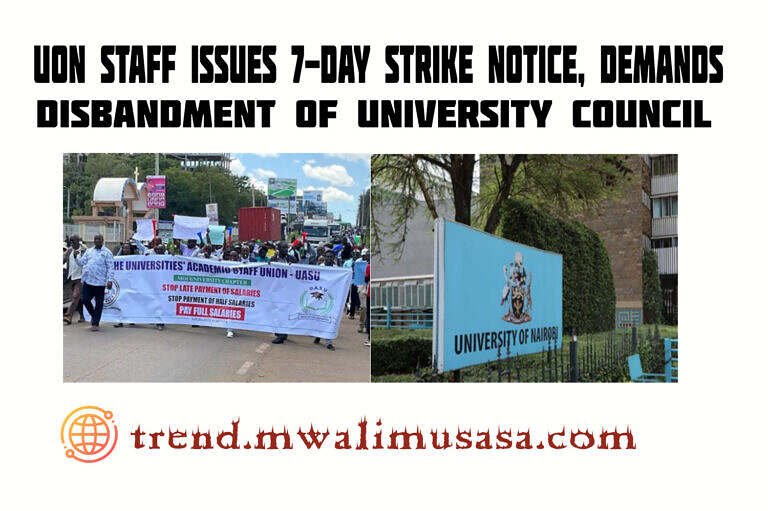Also read about : Essential Qualifications for English Teachers: TESOL, TEFL, and CELTA Explained
Kenyan teachers now have a golden opportunity to take their careers global through the Mwalimu Majuu Program, an initiative aimed at exporting highly skilled teachers to 17 countries. This program not only enhances Kenya’s educational footprint abroad but also offers teachers better career prospects and exposure to international teaching standards. If you’re a teacher aspiring to be part of this program, there are critical requirements you must meet to ensure a successful application. While documents like a Certificate of Good Conduct and a Passport are essential, there are several additional criteria you must prepare for to stand out. Here’s a comprehensive guide to everything you need.
1. Academic Qualifications
To qualify for the Mwalimu Majuu program, you must have the right academic credentials. These include:
A Certificate, Diploma, or Degree in Education: Ensure your qualifications are from a recognized institution in Kenya or abroad. Certification must be authenticated and, if necessary, translated into the language of the host country. For P1 teachers, ensure your P1 certificate aligns with the qualifications required for teaching primary education in the destination country.
2. Teachers Service Commission (TSC) Registration
All applicants must be registered with the Teachers Service Commission (TSC). Your TSC registration number serves as proof that you are a qualified and professional teacher. Take time to confirm that your TSC registration is active and free from any disciplinary issues. If you’re not registered yet, visit the TSC portal to complete your registration.
3. Specialized Training (if applicable)
Depending on the teaching role you’re applying for, specialized training might be necessary. For example:
Special Needs Teachers: A certification in Special Needs Education is required for positions in countries like Kuwait and UAE.
English Teachers: Qualifications like TESOL (Teaching English to Speakers of Other Languages), TEFL (Teaching English as a Foreign Language), or CELTA are highly recommended for teaching in non-English-speaking countries.
Kiswahili Teachers: Proof of Kiswahili proficiency might be requested for roles in countries such as South Africa, Botswana, and Japan.
4. Language Proficiency Tests
If you’re applying for roles that require English teaching, you may need to demonstrate proficiency by taking international language tests such as:
TOEFL (Test of English as a Foreign Language)
IELTS (International English Language Testing System)
These tests are often a requirement for work permits in countries like the USA, UAE, or Canada. Additionally, some countries may require Kiswahili teachers to undergo language certification or demonstrate fluency.
5. Legal and Ethical Compliance
Compliance with Chapter Six of the Constitution ensures you meet integrity and ethical standards. Key documents you’ll need include:
Ethics and Anti-Corruption Commission (EACC) Clearance Certificate: Proves you have no history of corruption or unethical conduct.
KRA Tax Compliance Certificate: Shows you are in good standing with the Kenya Revenue Authority. Ensure these documents are up to date and properly certified.
6. Experience and Recommendations
Most host countries prefer teachers with practical classroom experience. Here’s how you can prepare:
Highlight your teaching experience and accomplishments in a professional resume or curriculum vitae (CV). Obtain recommendation letters from current or previous employers, school administrators, or mentors. These should emphasize your teaching skills, professionalism, and adaptability.
7. Host Country-Specific Requirements
Each country has its unique requirements for teachers. Some of these may include:
Specialized Training: Additional qualifications, such as knowledge of the host country’s curriculum.
Health Clearance Certificates: Certain countries require medical tests as part of their visa process.
Work Permits and Visa Approvals: Research visa requirements early and ensure you provide all the necessary documentation. For example, Japan may require knowledge of its educational system for Kiswahili teachers, while UAE might demand proof of advanced training for Special Needs Education teachers.
8. Digital and Technological Skills
In today’s education landscape, digital literacy is a significant advantage. Many schools abroad integrate technology into their teaching methods, so proficiency in tools such as:
Google Classroom, Microsoft Teams, or Zoom for virtual teaching.
E-learning platforms and smart classroom technologies. Adding these skills to your resume can give you a competitive edge in the application process.
9. Financial Preparation
While the program opens global doors, there may be associated costs, such as:
Paying for certifications like TOEFL or TESOL.
Visa application and travel expenses.
Relocation costs, including accommodation and initial settlement. It’s crucial to budget for these expenses early on.
10. Challenges You Might Face and How to Overcome Them
Delays in Document Processing: Apply for critical documents like passports, clearance certificates, and TSC registration well in advance.
Qualification Recognition: Some host countries might require additional certifications. Be prepared to take bridging courses if necessary.
Cultural Adjustment: Engage with cultural exchange programs or online forums to understand the norms of the host country.
Conclusion
The Mwalimu Majuu Program is a life-changing opportunity for Kenyan teachers to showcase their skills on the global stage. By meeting all the requirements and preparing adequately, you can unlock better career prospects while contributing to the international education sector. Start preparing today! With the right qualifications, certifications, and determination, you’ll be ready to represent Kenya in classrooms worldwide.
Call to Action
“Do you have any questions or need further guidance on the application process for the Mwalimu Majuu program? Let us know in the comments below!” Include links to useful resources like the TSC portal or details on obtaining the Certificate of Good Conduct






I would like to be Among those going to Australia I am a p1 teacher do I qualify? Am yet to be employed by tsc Kenya since 2017 do I qualify to there? Again how do we apply for the each certs ?
Hello mwalimu, as of know you qualify according to the information at hand. Stay put onced the clear guidelines are out ,we shall inform.
Thanks for your time here.
Thankyou so much, knowledge is power. I am a diploma holder in Biology and chemistry. I will be glad to join the globe in teaching career. I have a work experience having been in field since 2021,but yet to be absorbed. Na mbele iwe sawa. Greatful Mwalimu
Thank you so much for your kind words and sharing your journey! It’s inspiring to see your dedication and passion for teaching, especially in the fields of Biology and Chemistry. Your experience since 2021 speaks to your commitment to the profession, and I believe that perseverance will lead to the opportunities you’re seeking. Keep pushing forward, as great things are often just around the corner. The teaching profession is lucky to have someone as dedicated as you, and I’m sure your efforts will be recognized soon. Wishing you all the best in your career, and may your journey continue to be filled with growth and success.
Stay strong, Mwalimu! Your passion for education is truly powerful.
Hello,am P1 teacher who graduated 2015 .Can i get the chance
Hello,am P1 teacher who graduated 2015 .Can i get the chance with Mwalimu majuu
Thank you for your comment! It’s great to hear that you’re a P1 teacher and are looking to explore teaching opportunities abroad. As you mentioned, the path to teaching in another country can depend on a variety of factors, including the country you’re interested in, the specific teaching requirements, and your qualifications.
For Mwalimu Majuu ,we have to wait for the directives from the government. Though many countries are open to hiring teachers from Kenya, especially in places like the Middle East, Asia, and parts of Africa. However, it’s important to research the specific requirements for each country. For example, some countries may require credential evaluations or proof of proficiency in the local language.
You might also want to explore teaching recruitment agencies that specialize in placing teachers abroad. They can assist you with the application process and help you understand what steps you need to take to qualify for teaching positions overseas. Networking with other Kenyan teachers working abroad can also give you valuable insights into the process.
I’m confident that with your qualifications, you can find a rewarding opportunity abroad. Best of luck in your pursuit of teaching opportunities, and I hope you find success in your journey!
Feel free to reach out if you have more questions. All the best, Mwalimu!
Am tsc active employed math/physics, can i terminate the service and apply for these chance?
Am a P1 certificate holder, diploma in ECD, and Degree in ECD holder more interested in USA Canada or UK.
Também tenho o seu livro marcado para ver coisas novas no seu blog.